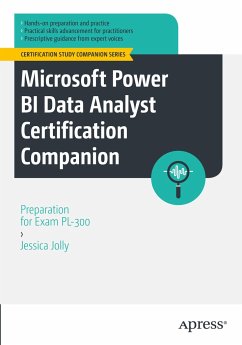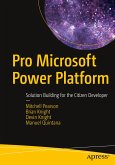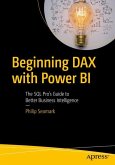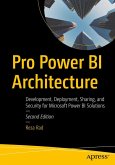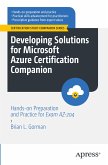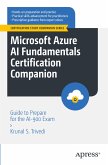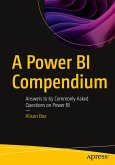Use this book to study for the PL-300 Microsoft Power BI Data Analyst exam. The book follows the "Skills Measured" outline provided by Microsoft to help focus your study. Each topic area from the outline corresponds to an area covered by the exam, and the book helps you build a good base of knowledge in each area. Each topic is presented with a blend of practical explanations, theory, and best practices.
Power BI is more than just the Power BI Desktop or the Power BI Service. It is two distinct applications and an online service that, together, enable business users to gather, shape, and analyze data to generate and present insights. This book clearly delineates the purpose of each component and explains the key concepts necessary to use each component effectively. Each chapter provides best practices and tips to help an inexperienced Power BI practitioner develop good habits that will support larger or more complex analyses.
Manybusiness analysts come to Power BI with a wealth of experience in Excel and particularly with pivot tables. Some of this experience translates readily into Power BI concepts. This book leverages that overlap in skill sets to help seasoned Excel users overcome the initial learning curve in Power BI, but no prior knowledge of any kind is assumed, terminology is defined in non-technical language, and key concepts are explained using analogies and ideas from experiences common to any reader. After reading this book, you will have the background and capability to learn the skills and concepts necessary both to pass the PL-300 exam and become a confident Power BI practitioner.
What You Will LearnCreate user-friendly, responsive reports with drill-throughs, bookmarks, and tool tipsConstruct a star schema with relationships, ensuring that your analysis will be both accurate and responsivePublish reports and datasets to the Power BI Service, enabling the report (and the dataset) to be viewed and used by your colleagues Extract data from a variety of sources, enabling you to leverage the data that your organization has collected and stored in a variety of sourcesSchedule data refreshes for published datasets so your reports and dashboards stay up to dateDevelop dashboards with visuals from different reports and streaming content
Who This Book Is For
Power BI users who are planning to take the PL-300 exam, Power BI users who want help studying the topic areas listed in Microsoft's outline for the PL-300 exam, and those who are not planning to take the exam but want to close any knowledge gaps they might have
Power BI is more than just the Power BI Desktop or the Power BI Service. It is two distinct applications and an online service that, together, enable business users to gather, shape, and analyze data to generate and present insights. This book clearly delineates the purpose of each component and explains the key concepts necessary to use each component effectively. Each chapter provides best practices and tips to help an inexperienced Power BI practitioner develop good habits that will support larger or more complex analyses.
Manybusiness analysts come to Power BI with a wealth of experience in Excel and particularly with pivot tables. Some of this experience translates readily into Power BI concepts. This book leverages that overlap in skill sets to help seasoned Excel users overcome the initial learning curve in Power BI, but no prior knowledge of any kind is assumed, terminology is defined in non-technical language, and key concepts are explained using analogies and ideas from experiences common to any reader. After reading this book, you will have the background and capability to learn the skills and concepts necessary both to pass the PL-300 exam and become a confident Power BI practitioner.
What You Will LearnCreate user-friendly, responsive reports with drill-throughs, bookmarks, and tool tipsConstruct a star schema with relationships, ensuring that your analysis will be both accurate and responsivePublish reports and datasets to the Power BI Service, enabling the report (and the dataset) to be viewed and used by your colleagues Extract data from a variety of sources, enabling you to leverage the data that your organization has collected and stored in a variety of sourcesSchedule data refreshes for published datasets so your reports and dashboards stay up to dateDevelop dashboards with visuals from different reports and streaming content
Who This Book Is For
Power BI users who are planning to take the PL-300 exam, Power BI users who want help studying the topic areas listed in Microsoft's outline for the PL-300 exam, and those who are not planning to take the exam but want to close any knowledge gaps they might have

